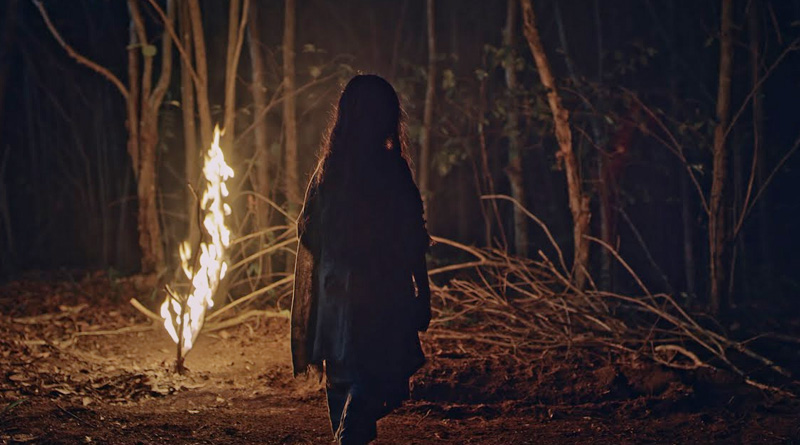Roh (2020) Review
Having missed its cinema release back in August, I finally got the opportunity to check out Emir Ezwan’s Roh (or Soul in Malay) on MUBI streaming service.
The movie, which recently made its mark as Malaysia’s official submission for next year’s 93rd Academy Awards for consideration in the Best International Feature Film category, tells a story about a family of three (Farah Ahmad, Mhia Farhana and Harith Haziq) who live in a hut somewhere in the remote jungle village.
One day, they find a mysterious young girl (Putri Syahidah Nurqaseh) caked in mud wandering in the jungle and decided to bring her home. But something is not right about the young girl and it doesn’t take long before a series of strange and sinister events start to haunt the family. Complicating matters are the appearances of two outsiders including an old shaman who called herself as Tok (Junainah M.Lojong) and a spear-wielding hunter (Namron), with the latter desperately looking for the young girl.
Roh begins with a verse from the Quran suggesting the movie is leaning more into the Islamic-themed religious horror genre. One thing that I learned about religious horror films can be preachy in its execution.

But writer-director Emir Ezwan, making his first feature-length debut shows great restraint in both themes and storytelling. The plot itself is kept to a bare minimum and instead, relying more on mood and atmosphere than the usual expository-heavy approach to get the point across. The kind of point that is more symbolic than literal, with the recurring imagery of fire and clay representing the existential nature of evil, darkness and humankind.
Viewers who are grown accustomed to watching mainstream horror movies might find Roh a tad too slow and ambiguous for its own good. It can be a turn-off for some and I have to admit its metaphor-heavy storyline isn’t exactly the movie’s strongest suit. It somehow lacks the thought-provoking vibe within its minimalist narrative. Even the small-scale characters could have used a little more push in terms of exploring both emotional and psychological struggles between them. Which is why it’s hard for me to root for these characters, particularly Farah Ahmad’s role of Mak (or “mother” in Malay) and her two children (Mhia Farhana and Harith Haziq) no matter how committed their acting is.
Fortunately, Roh remains a technical triumph from both visual and aural perspectives. Emir made good use of its deliberate pace to evoke an ominous sense of dread and fear of the unknown rather than the obligatory jump scares. And while there are jump scares every now and then, he does so in a more subtle and unforced manner.
It also helps that Emir is being precise about how he uses sound design, coupled with Reinchez Ng’s foreboding score and Saifuddin Musa’s atmospheric cinematography — all of which help to make the otherwise lush and quiet jungle both eerie and claustrophobic setting. No doubt a respectable accomplishment for a local indie horror that costs a measly budget of RM360,000.
Roh is currently streaming exclusively on MUBI.





